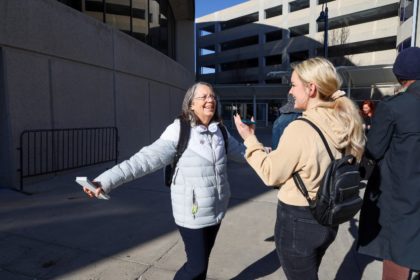Losing a loved one is a difficult time for your family, relatives, and friends. In addition, survivors frequently have to find out how to transfer or inherit the assets of the person who died. The assets that a person leaves when they die are called “the deceased’s estate”. The “deceased” is the person who passed away. Your “estate” is the assets you had when you died.
Generally, you have to go to court to transfer or inherit property from a person who has passed away. And the process in court to transfer the assets of a person who died is very complicated. However, sometimes the family or relatives of the deceased can transfer the assets without going to court.
It is not always easy to know if you have to go to court or if you are qualified to use a different procedure. There are many new terms to know for these types of cases. Click for a short list of wordsPDF file type icon related to wills and probate, and what they mean.
This section will provide general information to help you understand your options, but we still recommend that you speak with an attorney for specific answers about your situation. Generally, you will be able to pay your attorney’s fees out of the estate in the case.
To find a lawyer, call the lawyer referral service at your local bar association. Click for help finding a lawyer referral service in your area in here at Probate Attorney Brooklyn.
What are the different ways that an estate can be transferred after someone dies?
Depends. There are a few ways to do this without going to probate court.
Some common examples are:
If a particular asset (such as a retirement plan, life insurance policy, or bank account) already has a named beneficiary, that asset goes to the beneficiary (or beneficiaries, if there are more than one) without going to court.
If a home is owned by two or more people in joint tenancy, the other owners have a right of survivorship, which generally means they inherit all the property in their name.
Real property can sometimes be transferred without going to court, with a death transfer deed (also called a beneficiary deed).
Living trust assets can be transferred without going to court.
There are some simplified procedures for estates worth less than $ 166,250.
Any part of the estate that cannot be transferred more informally will likely have to be transferred in probate court. How the estate is transferred depends partially on whether the decedent died with or without a will.
What is a probate case?
A probate case is a case that is started in court to:
- Decide if a will exists and is valid;
- Determine who are the heirs or beneficiaries of the deceased;
- Determine how much the deceased’s assets are worth;
- Take care of the financial responsibilities of the deceased;
- Transfer the assets of the deceased to the heirs or beneficiaries.
In a probate case, the court appoints an executor (if there is a will) or an administrator (if there is no will) as a personal representative, to collect the assets, pay debts and expenses, and then distribute the remainder of the estate. succession to beneficiaries (those who have the legal right to inherit), all under the supervision of the court. The case can last between 9 and 18 months, and sometimes even longer.
First steps in dealing with an estate when a person dies
expand all collapse all
- Step 1: Determine who will be the representative of the estate.
- Step 2: As a representative of the estate, begin gathering information and fulfilling your duties.
- Step 3: Determine who the heirs and beneficiaries are.
- Step 4: Identify and inventory the decedent’s assets.
- Step 5: Determine the best way to transfer the goods





